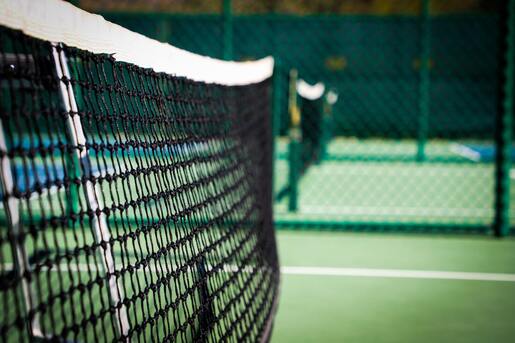A.J.'s post (you can read it here) covers the many methods and tricks he tried to overcome his fears. These ranged from the usual (meditation, hydration, proper eating habits) to the unusual (paying a friend to cheer for him). He says all worked to some degree, but he fount no real answer. A.J.'s "solution" was to create what he calls a "clandestine self" to hide behind and says he'll explain more in a future post.
I share his fear on the courts and in other areas of my life—all of which I suspect are related. Knowing people are watching and judging what I do causes dread. So what do the players who consistently win do differently from A.J. and me? Do they have a secret we don't?
I spoke with some well-ranked pickleball players who told me they focus on winning and not on what people think of them or how they play. They agreed with Brian Triptow (M.S. Exercise & Sport Science) who commented on A.J.'s blog post:
On the first day of my first class in Applied Sport Psychology, Dr. Nicole Detling told us, “Why you play has a great deal to do with how you play.” . . . Research in human motivation indicates that those who are intrinsically motivated are more resilient and perform better than those who play for external reasons. In other words, don’t play for the trophy or to impress others. Give yourself permission to play free and play well in an exploration of your potential. Every match is a learning opportunity. Opponents represent the metrics of your progress . . . the best players don’t care as much about what people think about how they play. They care, but they care most about mastering the task of pickleball.
In my own case, I may have discovered something. I mentioned to A.J. that I hope to get better at playing the hammered dulcimer and would love to play in public and with other musicians. More often than not, however, when I know people are watching me, I freeze, and the music goes down the drain. Conversely, I love to sing and act on stage, and I feel no stagefright at all. I believe the difference is that singing is something I've done all my life, since I was a kid. Acting is just that: acting. It's almost like it's not me on stage but someone else. With the dulcimer, though, I didn't have the advantage of starting as a child, when I wasn't afraid to try something new and I didn't have preconceived notions of how "great" I should be in everyone else's eyes.
Everyone has a different way to calm down and look rationally at the things that have us in a twizzle. Those with an "I don't care—I'm just here to have fun" or "I'm just here to do my best" do better than those who care what other people think.
I mentioned this idea to several players. One said, "You're assuming other players are looking at you. They're not. They're busy with their own games. Even If they do look and judge when you're their opponent, they're only thinking, 'How can I beat this person'—they're not judging your play like you are. Just play. Leave the worry at home."
I read several articles about stagefright, which is what these feelings boil down to, I believe. They all say similar things, but they also list strategies to overcome it. People do overcome stagefright. You can overcome this, too.


 RSS Feed
RSS Feed